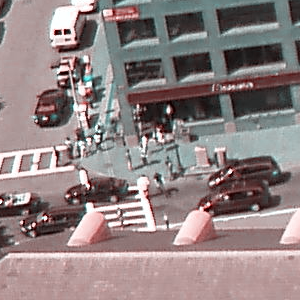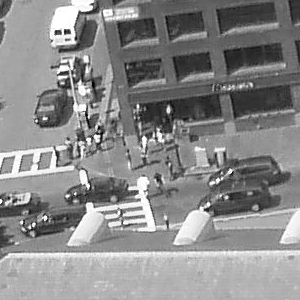Name
ST_Band — Restituisce una o più bande di un raster esistente come un nuovo raster. Utile per costruire nuovi raster da raster esistenti.
Synopsis
raster ST_Band(raster rast, integer[] nbands = ARRAY[1]);
raster ST_Band(raster rast, integer nband);
raster ST_Band(raster rast, text nbands, character delimiter=,);
Descrizione
Restituisce una o più bande di un raster esistente come un nuovo raster. Utile per creare nuovi raster da raster esistenti o per esportare solo bande selezionate di un raster o riorganizzare l'ordine delle bande in un raster. Se non viene specificata alcuna banda o se una delle bande specificate non esiste nel raster, vengono restituite tutte le bande. Utilizzata come funzione ausiliaria in varie funzioni, ad esempio per l'eliminazione di una banda.
![[Warning]](../images/warning.png)
|
|
|
Per le |
Disponibilità: 2.0.0
Esempi
-- Make 2 new rasters: 1 containing band 1 of dummy, second containing band 2 of dummy and then reclassified as a 2BUI
SELECT ST_NumBands(rast1) As numb1, ST_BandPixelType(rast1) As pix1,
ST_NumBands(rast2) As numb2, ST_BandPixelType(rast2) As pix2
FROM (
SELECT ST_Band(rast) As rast1, ST_Reclass(ST_Band(rast,3), '100-200):1, [200-254:2', '2BUI') As rast2
FROM dummy_rast
WHERE rid = 2) As foo;
numb1 | pix1 | numb2 | pix2
-------+------+-------+------
1 | 8BUI | 1 | 2BUI
-- Return bands 2 and 3. Using array cast syntax
SELECT ST_NumBands(ST_Band(rast, '{2,3}'::int[])) As num_bands
FROM dummy_rast WHERE rid=2;
num_bands
----------
2
-- Return bands 2 and 3. Use array to define bands
SELECT ST_NumBands(ST_Band(rast, ARRAY[2,3])) As num_bands
FROM dummy_rast
WHERE rid=2;
 original (column rast) |
 dupe_band |
 sing_band |
--Make a new raster with 2nd band of original and 1st band repeated twice,
and another with just the third band
SELECT rast, ST_Band(rast, ARRAY[2,1,1]) As dupe_band,
ST_Band(rast, 3) As sing_band
FROM samples.than_chunked
WHERE rid=35;
Si veda anche
ST_AddBand, ST_NumBands, ST_Reclass, Chapter 11, Riferimento raster